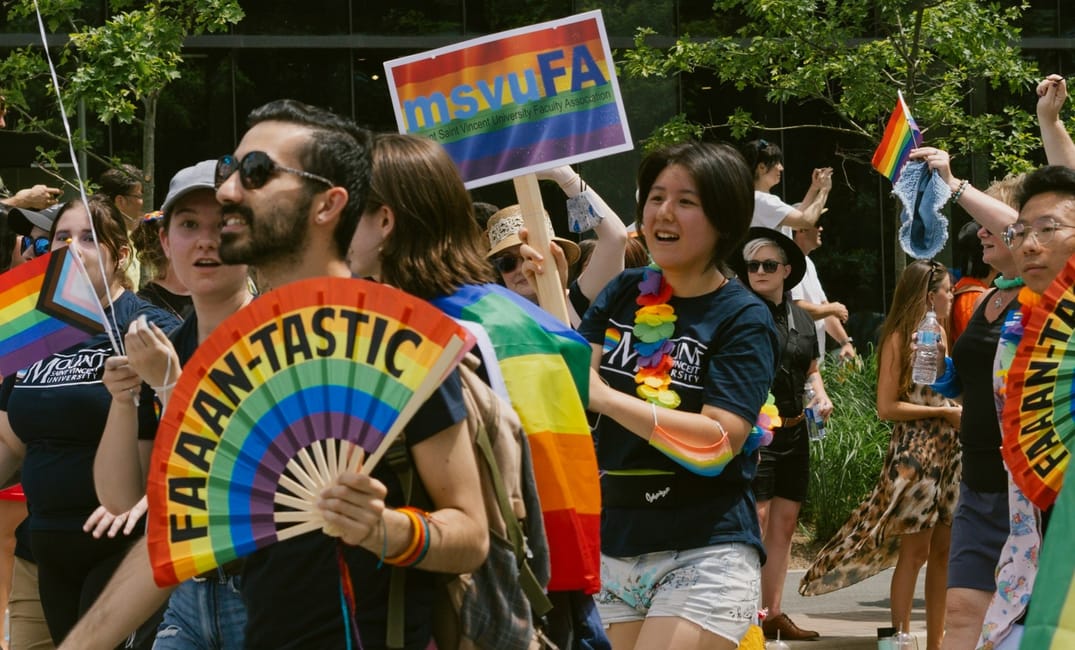✏️ Liam Mac Lua-Hodgson
Since the 1960’s the LGBTQ community has gradually received wider recognition within European society, leading to improved social rights and changing attitudes towards the community. While it can be acknowledged that Western Europe is perhaps the most “gay-friendly” in the world progress is far from complete, especially regarding rights for Transgender people. Despite some notable achievements over the past year, there are distressing signs within some countries that prove the fight for complete equality for the LGBTQ community is far from won and must be continued.
As mentioned above there have been some recent positives in the fight for equal rights. In Northern Ireland, same-sex marriages are now finally taking place with Westminster passing legislation that certified the country as being on par with the rest of the UK in recognising marriage equality. Meanwhile, in Switzerland, a strong majority of voters supported a referendum that extended anti-racism legislation to cover sexual orientation, thereby ensuring that those who demean others due to their sexuality can be punished by the law. This places Switzerland among other Western European countries who already have such legislation in place.
Unfortunately, such positives are dampened when according to ILGA-Europe there has been a rise in hate violence across the region as well as a rise in hate speech by political leaders in a further 17 countries. This has developed with the continent currently witnessing a rise in populism across the political field. Even in some of the more “progressive” nations, namely France and the UK, surges in homophobic and transphobic attacks have been reported. Proving that more work is needed to stamp out backwards attitudes and language within our societies.
It is in Hungary and Poland, two EU states, where the clearest regressions in terms of attitudes towards the LGBTQ community have occurred. The past few years have seen the two countries elect populist and conservative governments. This has resulted in notable attacks on LGBT+ rights within the countries. In Poland, the current President Andrzej Duda recently pledged to “defend children from LGBT ideology”, doing so by banning LGBT+ teaching within schools and public institutions.
Whilst in Hungary Victor Orban’s majority government has ended legal recognition of trans people by defining gender as “biological sex based on primary sex characteristics and chromosomes” therefore making it impossible for people to legally change their gender. It is hoped that this will be recognised as a clear breach of the European Convention on Human Rights (ECHR). Though the fact such laws are even being debated in modern EU countries disavows the expectation that joining the EU guarantees the installation of progressive values.
This has emphasised the still large disparities between Western and Eastern Europe on views towards the LGBTQ community. The map below provides a clear indication of the divide over LGBTQ rights that is seen in Europe.
More pressure must be applied for countries to improve attitudes towards LGBTQ people and ensure states do not regress on key human rights that safeguard equality measures. This includes the right for gay couples to marry and adopt. In 13 EU countries, this is still not recognised, with 5 of them even failing to recognise same-sex unions.
Covid-19 has also disproportionately affected the LGBTQ community in Europe. While the virus itself fails to discriminate it has impacted certain communities far more than others. Studies have shown that high numbers of LGBTQ youths still experience familial rejection, which can only lead to increased mental stress for those who are then forced to quarantine with abusive or unaccepting families. Additionally, Transition-related medical care, which is lifesaving for trans people, could be deemed non-urgent and postponed or cancelled as a result of this virus. Human rights advocates have warned that anti-LGBTQ rhetoric has ramped up in Eastern Europe, with a suspicion that the reaction to Covid-19 may include further divisive speech and reversals on LGBTQ rights.
Another area in which the continent remains backwards relates to the banning of gay conversion therapy. Last year Germany became one of the three European countries to do just that, it is hoped that this will finally lead to more countries taking this necessary step in banning this inhumane practice.
Pride month is a time for the celebration of sexual diversity and a way in which the LGBTQ community declares unity and strength to all those who are part of the community across the world. While the movement towards equality has made huge strides over the past decades, the points that have been raised in this report prove that there is still so much more that needs to be achieved here in Europe. Attitudes still need to change, and laws need to be modernised. Until this is recognised the fight must go on.
Thanks for reading our article! We know young people’s opinions matter and really appreciate everyone who reads us.
Give us a follow on Instagram, Twitter and Facebook to stay up to date with what young people think.

